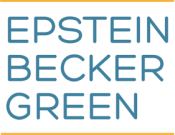On June 28, the FCC released a Public Notice announcing the 220 applicants that qualified for the CAF II reverse auction. These entities include rural rate of return carriers, electric cooperatives, wireless internet services providers, satellite providers, cable operators, and price cap ILECs (or affiliates thereof). Several consortiums also qualified. In one sense, the auction is already a resounding success as it elicited qualified bids from an array of existing and prospective rural broadband service providers.
One significant question that will be answered later this summer or early in the fall is the distribution of the performance tiers among the winning bids: Gigabit–Gbps/500 Mbps, Above Baseline–100/20 Mbps, Baseline–25/3 Mbps, and Minimum–10/1 Mbps. This should inform the FCC, Congress and the public as to whether the current fixed broadband benchmark of 25/3 Mbps should be retained or increased. The winning bids will indicate what speeds are reasonably doable in many rural areas. An answer to a related question is whether the distribution of winning bidders tracks the diversity of qualified applicants.
From a systems perspective, the reverse auction, scheduled to start on July 24, will confirm whether the bidding system can accommodate the diversity of bidding weights, package bidding and calculate the data points for individual bidders and the aggregate implied support amounts after each round. This could encourage the use of reverse auctions in other USF contexts.
Assuming positive outcomes on these points, one criticism of the CAF II auction that will not be resolved concerns the selection of eligible bidding areas. Census blocks having multiple high-cost locations (based on the average of low cost, high cost and extremely high cost locations) in which a single location obtained service at 10/1 Mbps were not eligible for the CAF II auction. The result was eligible bidding areas with only one or a handful of locations included in the auction while census blocks having far more unserved locations excluded. This unfortunate “false-positive” needs to be addressed in both the Remote Areas Fund auction and in the auction that could take place as the state-wide offers to the price cap carriers expire in 2021.
By 2021, the progress reports filed by CAF II auction winners should either validate or raise questions as to whether the reverse auction is producing the desired outcomes of higher speed, reliable fixed broadband service in rural areas at reasonable rates. Another unknown is whether the minimum, baseline, and above baseline performance tiers for the 2018 auction will apply in 2021. Our sense is technology advances and marketplace developments such as Charter’s network-wide gigabit deployments will drive these thresholds higher.




 />i
/>i


